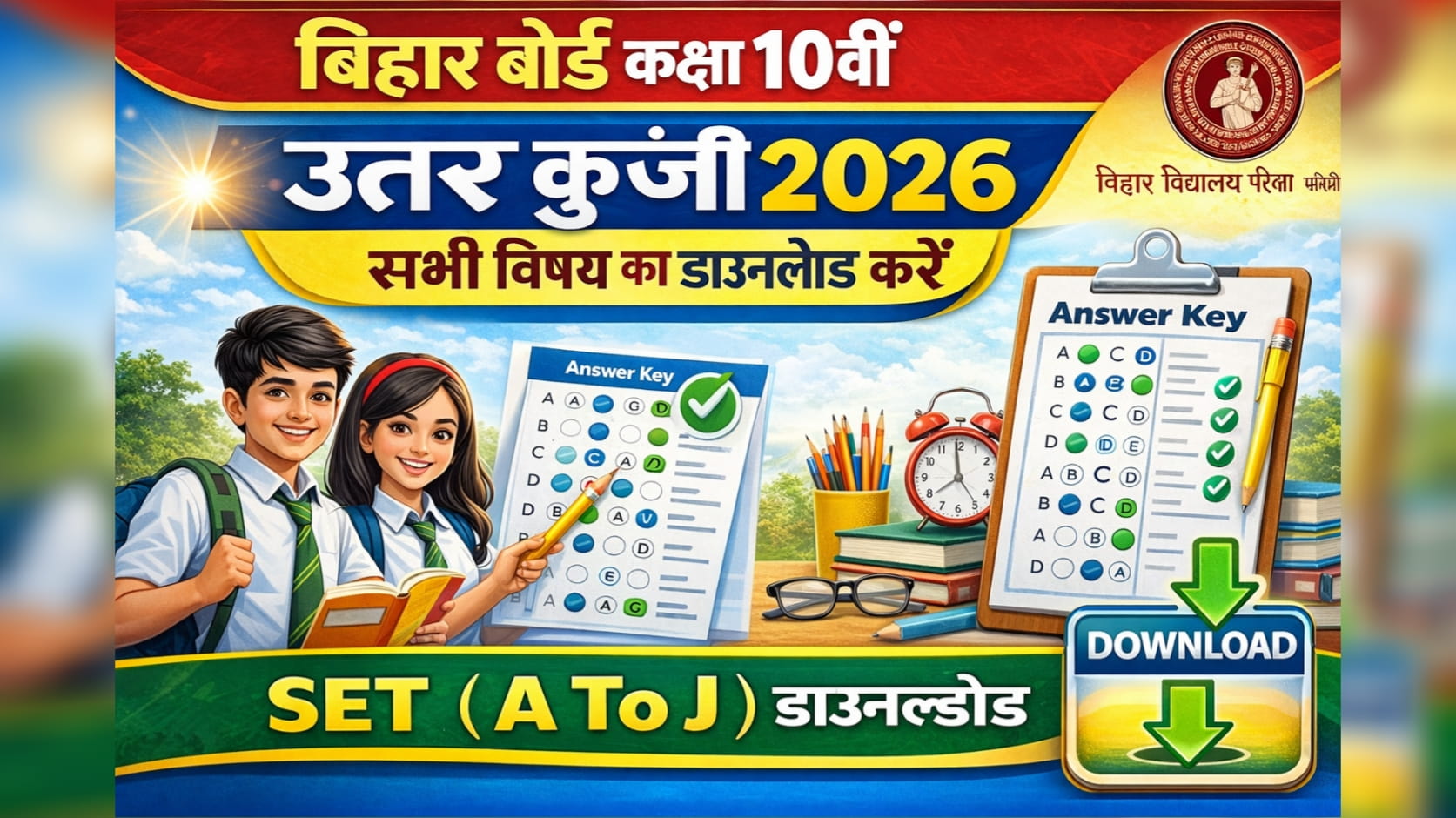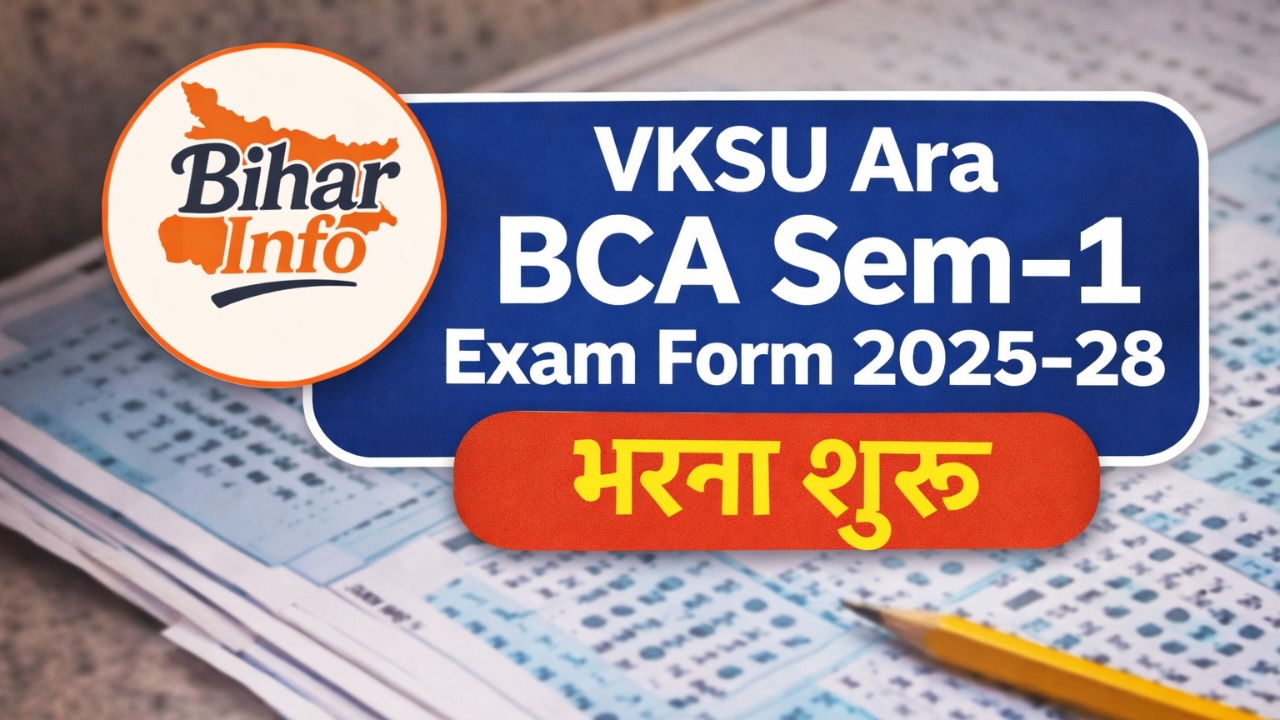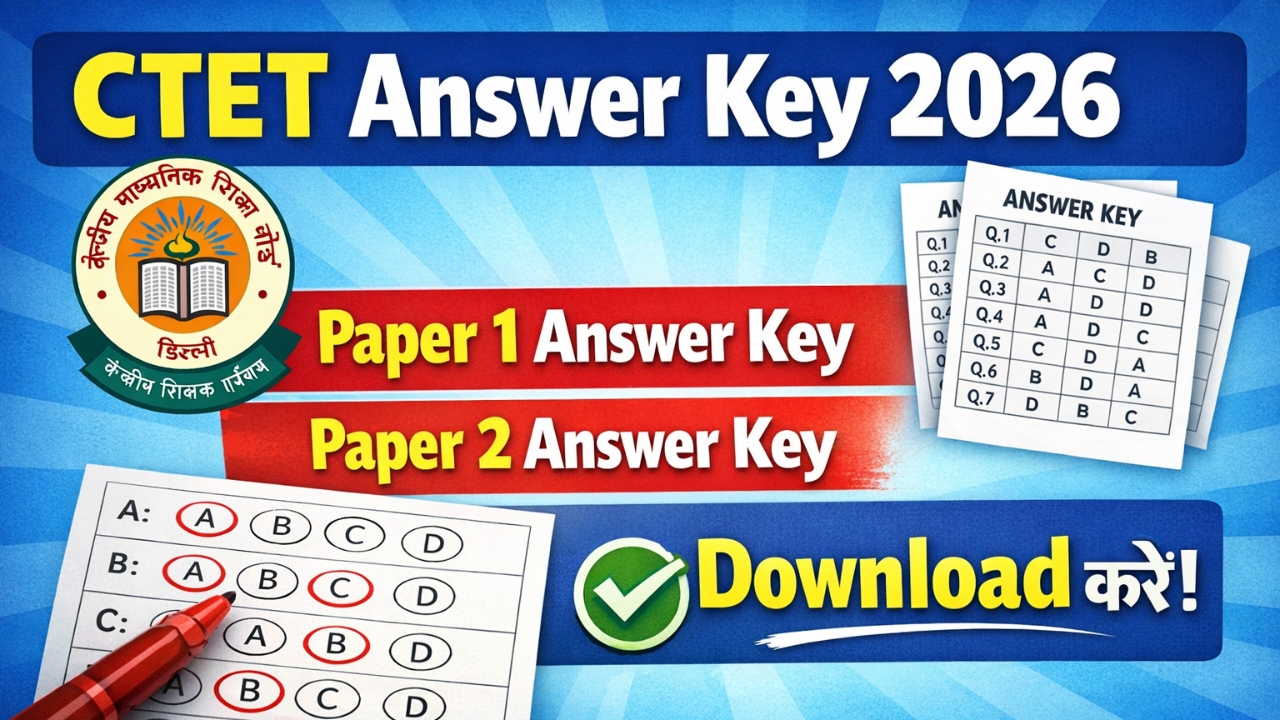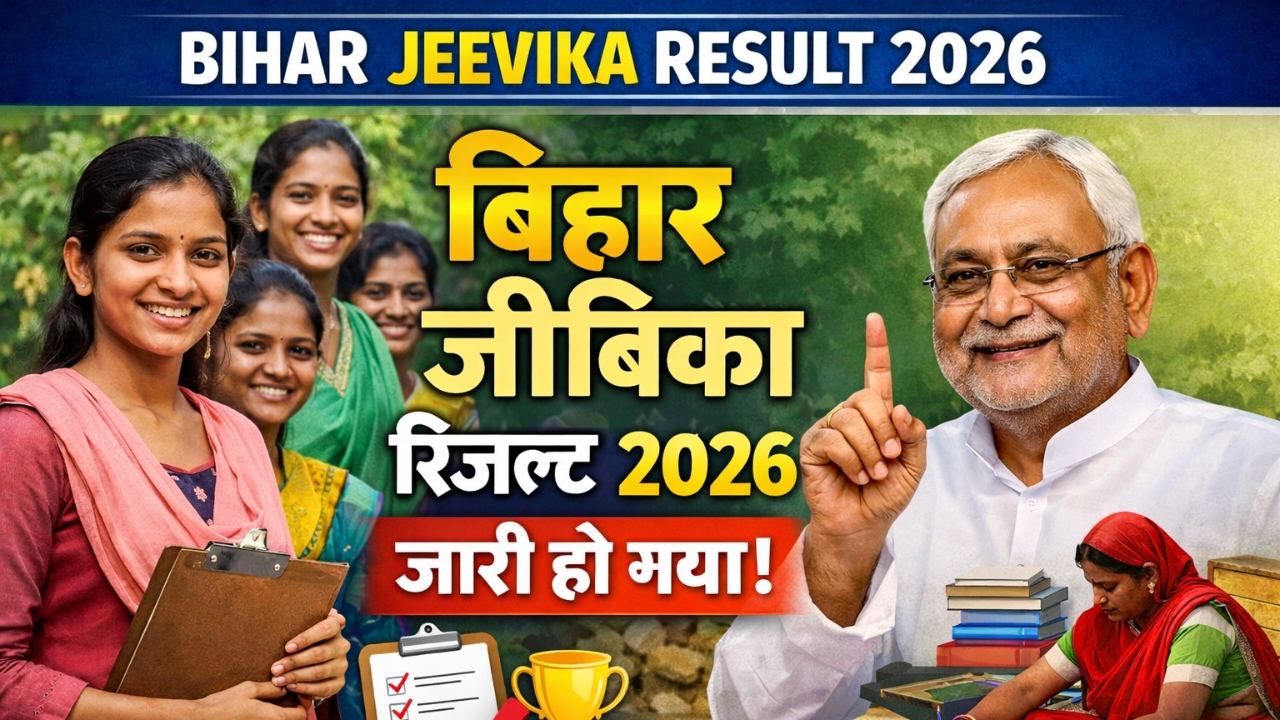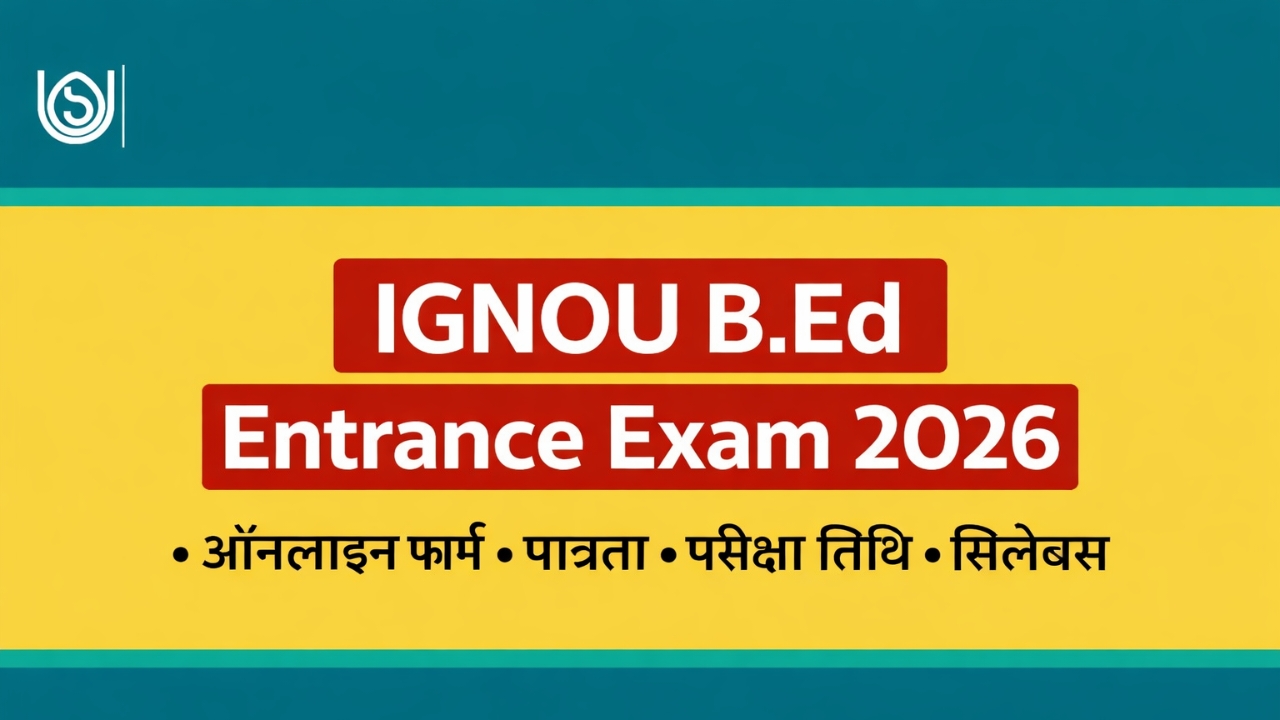
The first time I decided to take the RBI Grade B exam two years ago, I found myself completely confused by the vast amount of data I came across online past midnight. Each separate site seemed to use a different RBI Grade B syllabus, and I was more confused after searching than I had been at the start.
Let me go through the confusion I had at the beginning of preparation and how I discovered the answers. Perhaps your experience will be easier than mine was.
The “Official vs Unofficial” Syllabus Dilemma
What perplexed me most was telling what the RBI said from what was taught by coaching institutes to make their course look broad. I downloaded the notification three times, believing there must be more, as it was much shorter than the syllabi found anywhere else.
When I talked to someone who passed the RBI Grade B in 2019, they pointed out that the official RBI notification outlines the main points, but the minute details are what you have to watch out for.
Talking about the Indian Economy, they leave out many details in the syllabus, but from observations, you’ll realize that you need to know everything from budget analysis to the functioning of monetary policy.
For a long time, I was not sure if I should stick to the official requirements or use the full, detailed study guides from coaching firms. With time, I found the balance that I could handle.
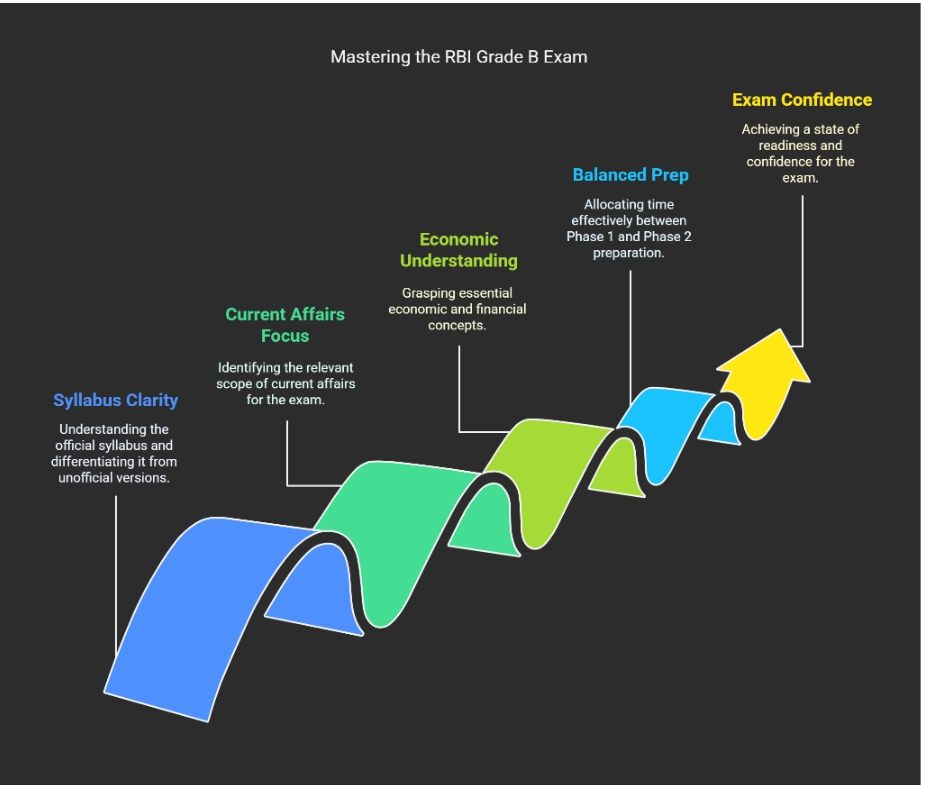
How Much Current Affairs Do I Really Need?
This affected me a lot. The current affairs part of General Awareness for Phase 1 is very important, but the syllabus doesn’t define how many years back candidates should go. Is memorizing all the headlines from this past year necessary? Two years? Every time I went through the monthly current events PDFs, I ended up overloaded with details.
Once I tested different approaches, I understood that the RBI expects knowledge of the past 3–5 months of current affairs for Phase 1. News about banks, finances, government plans, and worldwide economic happenings is extremely useful.
As an example, I took notes about the Union Budget, RBI’s monetary policies, and important reports published by the IMF or World Bank.
Since Phase 2 requires more detailed ESI, I started reading monthly magazines in addition to the newspapers. Phase 2 requires 6-8 months of current affairs.
Do I Need to Be an Expert in Economics or Finance?
Since I did not have an economics background, I often found myself thinking about this. I wasn’t sure how to handle the ESI and Finance, and Management papers given in Phase 2.
Did I have to go for an MBA or a PhD to find success in these fields? I would often open Financial Management by Prasanna Chandra and think I was reading material in an unfamiliar language.
The great thing is, you won’t need to be a specialist for this. Understanding the subjects is all that matters in this test. During my preparation for ESI, I concentrated on important concepts such as GDP, inflation, and schemes such as PM Awas Yojana.
I mainly studied banking procedures, how financial markets function, and the importance of the RBI for the Finance section.
How Do I Balance Phase 1 and Phase 2 Prep?
This was the toughest part of what I did. Phase 1 is easy to follow, moves fast, and needs quick actions. During Phase 2, the analysis is detailed, the writing is descriptive, and questions are thoroughly answered.
I spent most of my time on Phase 1 in the beginning, planning to tackle Phase 2 afterward, but this made things harder when I finished the prelims.What was helpful to me was splitting it into 70% and 30%. 70% for Phase 1 and 30% for Phase 2.
For the first few months, I mainly worked on Phase 1, doing mock tests and working on speed. The final 30% was used to complete the basics for Phase 2, including reviewing ESI and Finance readings, practicing essays, and refreshing management concepts.
After finishing Phase 1, I focused solely on Phase 2. Mock tests helped me get through both phases.
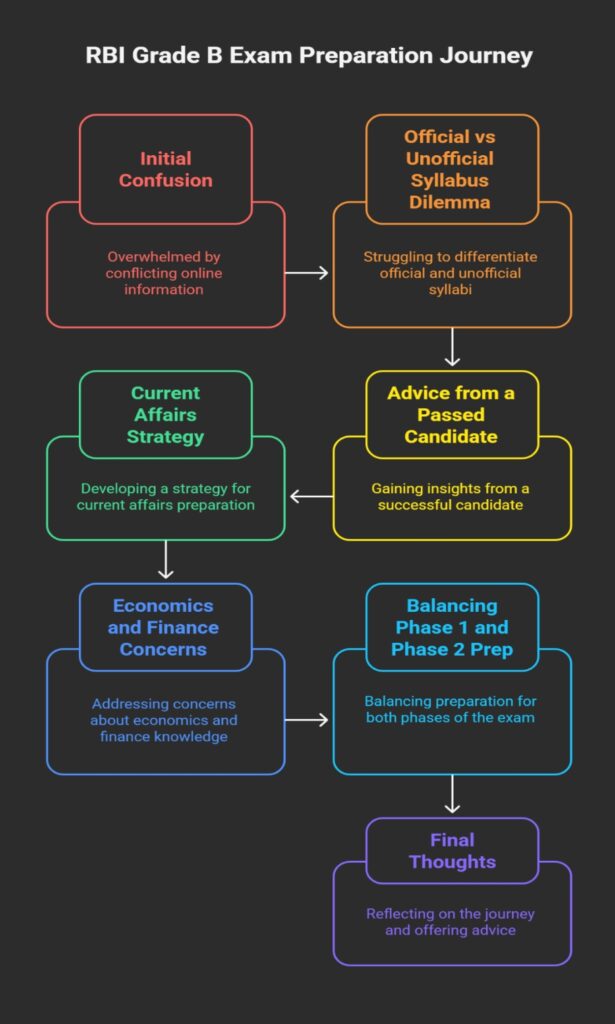
Final Thoughts
I now realize that the RBI Grade B syllabus wasn’t very difficult to tackle. Yes, it covers a lot, and yes, it takes work, but having a clear strategy will get you there. For me, that was the main lesson.
Don’t let worries stop you from moving forward. Divide the subject’s syllabus into smaller units, spend your major efforts on critical parts and get used to studying it every day. I moved from confusion to taking the exam with faith and if I did it, anyone can.

